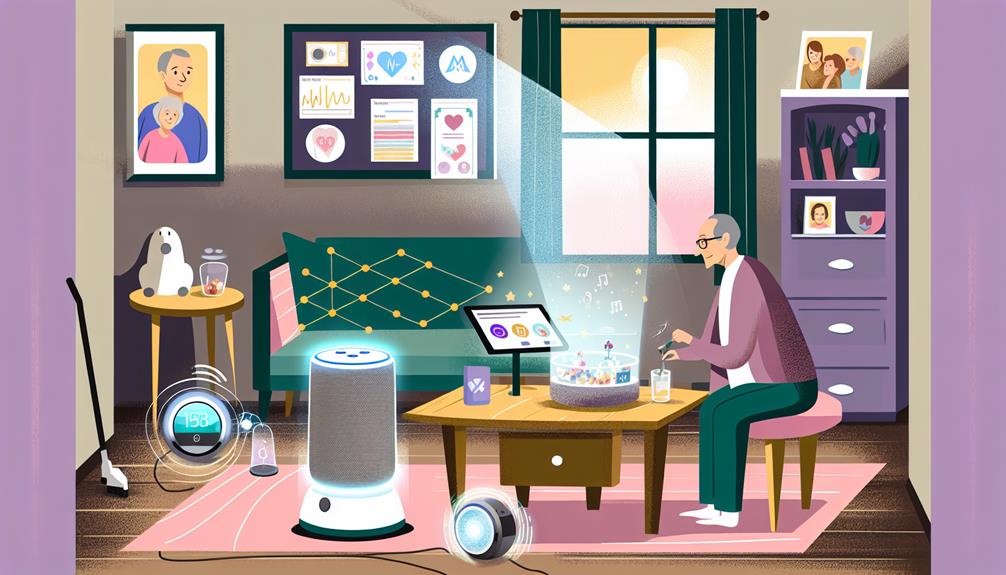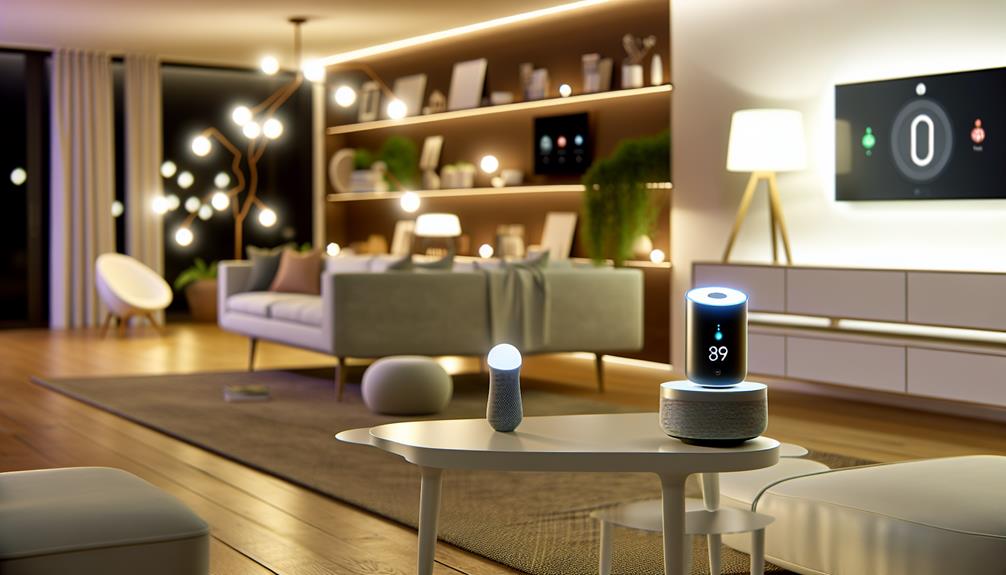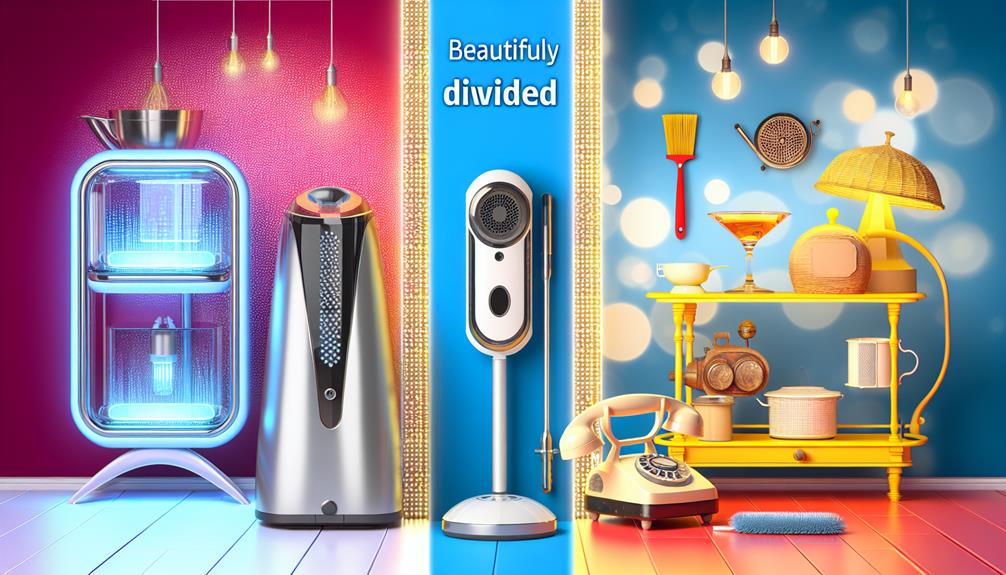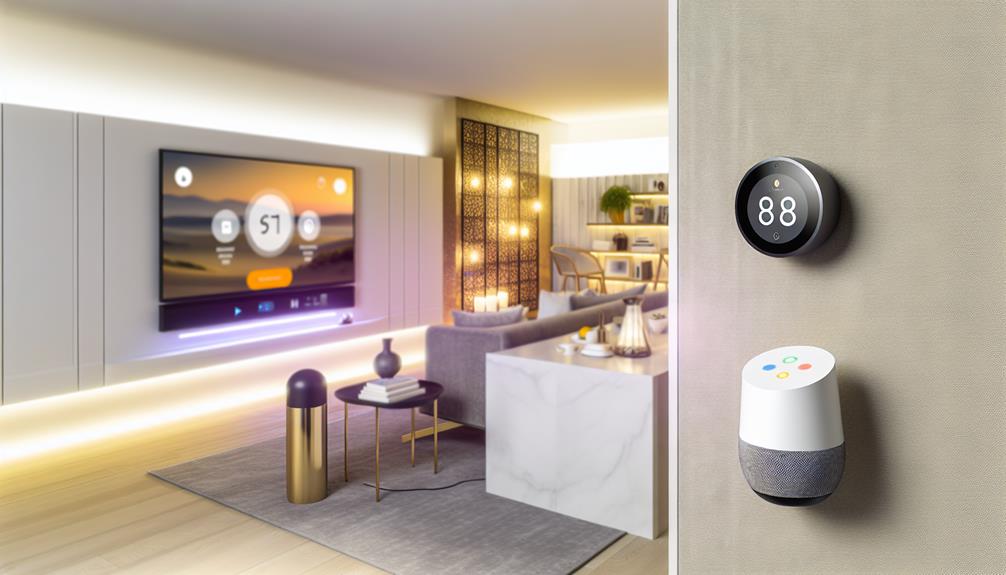Top 5 Smart Devices for Elderly Care
As the population ages, the integration of smart technology in elderly care has become increasingly essential. Various devices are designed to enhance safety, promote independence, and streamline daily tasks for seniors. Key innovations such as smart home assistants, health monitoring devices, and emergency response systems offer promising solutions to age-related challenges. However, understanding which devices truly make a difference can be complex. By exploring the top five smart devices tailored for elderly care, one can uncover crucial tools that not only support well-being but also transform the caregiving landscape.
Key takeaways
- Smart home assistants provide voice-activated support for daily tasks, medication reminders, and family communication, enhancing independence for elderly individuals.
- Health monitoring devices like wearable fitness trackers and smart blood pressure monitors offer real-time health insights and remote monitoring capabilities.
- Emergency response systems with fall detection and two-way communication ensure quick assistance and safety for seniors in emergencies.
- Smart lighting solutions use motion sensors and voice activation to improve safety at home, reducing fall risks and providing convenience.
- Medication management tools, such as pill organizers and dosage reminders, help prevent missed doses and promote adherence to medication schedules.
Smart Home Assistants
Smart home assistants have become increasingly prevalent in enhancing the quality of life for elderly individuals, providing both convenience and safety. These sophisticated devices utilize voice recognition technology, allowing users to interact with them effortlessly. For seniors, who may struggle with traditional interfaces, voice commands simplify daily tasks, making it easier to manage their homes and stay connected with loved ones.
One of the standout features of smart home assistants is their ability to deliver personalized reminders. These reminders can be tailored to help elderly individuals remember essential tasks such as medication schedules, appointments, or daily activities. By setting verbal alerts, seniors can maintain their independence while ensuring they adhere to important routines.
Moreover, smart home assistants can serve as a valuable communication tool, bridging the gap between elderly individuals and their families. Whether it's a simple check-in or a video call, these devices make it easy for seniors to feel connected, fostering a sense of belonging and support.
Health Monitoring Devices
Health monitoring devices have emerged as essential tools in the domain of elderly care, providing real-time insights into the well-being of seniors.
These devices leverage wearable technology and remote monitoring to guarantee that health concerns are addressed promptly, fostering an environment of safety and support.
Key health monitoring devices include:
- Wearable Fitness Trackers: These devices monitor heart rate, steps, and activity levels, encouraging seniors to maintain a healthy lifestyle while allowing family members to stay informed about their physical activity.
- Smart Blood Pressure Monitors: These easy-to-use devices track blood pressure readings and can sync data to smartphones, enabling caregivers to monitor health trends without needing to be physically present.
- Fall Detection Sensors: Integrated into wearables or home devices, these sensors detect falls and alert caregivers or emergency services, providing peace of mind to both seniors and their loved ones.
Emergency Response Systems
Emergency response systems play a critical role in ensuring the safety and well-being of elderly individuals living independently. These systems provide peace of mind not only to seniors but also to their families, knowing that help is readily available in case of emergencies.
Advanced features such as fall detection can automatically alert caregivers or emergency services when an individual falls, minimizing response time and potential complications.
Remote monitoring capabilities enhance these systems by allowing caregivers to keep track of their loved ones' movements and health metrics from a distance. This technology enables families to stay connected and informed, fostering a sense of security and belonging.
Many emergency response systems can be integrated with smartphones or smartwatches, making it easy for users to call for help at the touch of a button.
Moreover, today's emergency response systems often include two-way communication features, allowing seniors to converse with operators directly, ensuring their needs are addressed promptly.
Smart Lighting Solutions
How can effective lighting enhance the safety and comfort of elderly individuals in their homes? Smart lighting solutions are transforming the way seniors navigate their living spaces, providing a sense of security and independence.
By integrating technology, these systems address specific needs, ensuring that lighting is both functional and user-friendly.
Here are three key features of smart lighting solutions:
- Motion Sensors: These devices automatically turn on lights when movement is detected, reducing the risk of falls in dark areas such as hallways or bathrooms. This hands-free approach allows seniors to move confidently throughout their homes.
- Voice Activation: Smart lighting can be controlled by voice commands, making it easy for elderly individuals to adjust lighting without needing to fumble for switches. This feature fosters independence while minimizing physical strain.
- Remote Control: Family members can monitor and control lighting remotely, ensuring that their loved ones are safe and comfortable, even from a distance.
Incorporating these smart lighting solutions creates a supportive environment, allowing seniors to feel secure and at ease in their own homes.
Medication Management Tools
Managing medications can be a challenging task for elderly individuals, often leading to missed doses or confusion about prescriptions. Medication management tools have emerged as invaluable resources to simplify this process and enhance the quality of care for seniors.
Pill organizers are an essential component of effective medication management. These devices categorize pills by day and time, allowing users to easily track their medication schedule at a glance. With clear compartments, they reduce the risk of accidental overdoses or missed doses, fostering a sense of independence and security.
In addition to pill organizers, dosage reminders play a significant role in ensuring timely medication intake. Many smart devices offer customizable alerts that can be set to notify users when it's time to take their medications.
These reminders can be delivered through smartphones, tablets, or even dedicated medication management apps, making it easier for seniors to stay on track.
Frequently Asked Questions
How Do Smart Devices Help Reduce Caregiver Burden for Families?
Smart devices revolutionize caregiving, offering unparalleled support. Through remote monitoring and health tracking, they greatly alleviate caregiver burden, empowering families to maintain connection and oversight while ensuring their loved ones' safety and well-being.
Are There Privacy Concerns With Using Smart Devices in Elderly Care?
Privacy concerns in elderly care with smart devices arise from potential data security breaches and consent issues. Ensuring robust protections and transparent communication about data usage fosters trust, empowering families to utilize technology confidently for caregiving.
Can Smart Devices Be Integrated With Existing Home Security Systems?
Smart devices can indeed integrate with existing home security systems, enhancing safety and convenience. However, device compatibility challenges may arise, necessitating careful selection of compatible technologies to guarantee seamless smart security integration for peak functionality.
What Is the Average Cost of Smart Devices for Elderly Care?
When considering the average cost of smart devices for elderly care, a budget-conscious family might compare options; for instance, a health monitoring system can range from $100 to $300, prompting important budget considerations for ongoing support.
How User-Friendly Are These Devices for Seniors With Limited Tech Experience?
User-friendly smart devices feature intuitive user interfaces and simplified device navigation, ensuring seniors with limited tech experience can easily operate them. This accessibility fosters independence and enhances the quality of life, promoting a sense of belonging.



